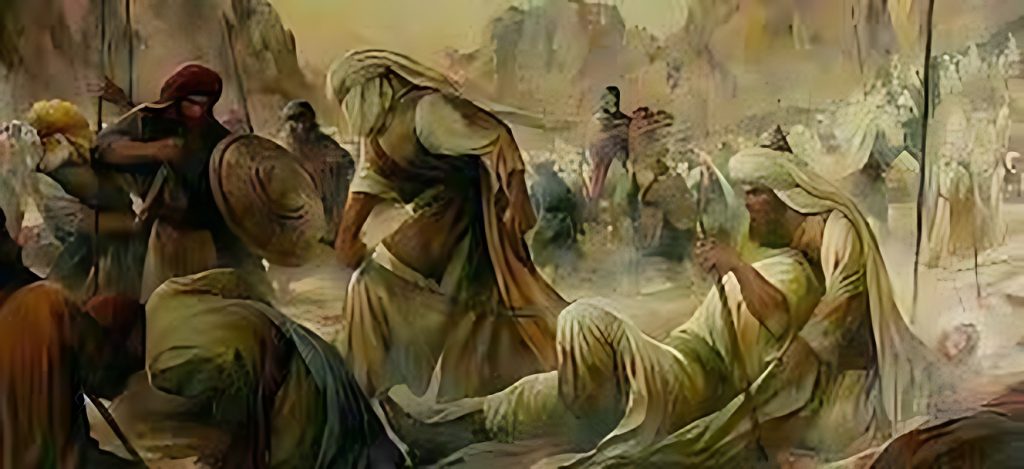Muhammad-Reza Jafari, Ghazweh-ye Uhud dar Partov-e Quran [The Battle of Uhud in the Light of the Quran], ed. Hasan Jahandideh, Tehran: Rowshana-ye Mehr, 1395 Sh/ 2016. 227 pp.
The late Allamah Ayatollah Muhammad-Reza Jafari (1310-1389 Sh/ 1931-2010) was an outstanding Iranian Shii mujtahid, polymath and a prolific author who was born and raised in Najaf, Iraq. His works show his predilection toward the Holy Quran in assessing the events mirrored in the Holy Quran. As such, he was a true Quran-oriented scholar and historian who viewed the Holy Quran to be the ultimate and sole judge, in contrast to the views of others who might wish assess Quranic indications in the light of historians’ records. It was with this yardstick that he assessed the records of certain Sunni historians’ interpretations of the Battle of Uhud.
The Battle of Uhud that took place in 3 AH/ 625 in the vicinity of Medina was led by Abu Sufiyan, the chief of the Meccan polytheists. It was intended to put an end to the growing Muslim community that were living in Medina. Soon after receiving the news of Abu Sufiyan’s approach toward Medina for waging a war against Muslims, the Prophet Muhammad consulted the Muslims in how to defend themselves. The final decision was to confront the enemy in the region of the Mount Uhud, located to the north of Medina.
The community who was able to join the defensive jihad was around 1,000 Muslims. However, the sinister line of the hypocrites who maintained their secret and fatal relations with both the Medina Jews and the Meccan polytheists started making a schism and fraction in the lines of the Muslim combatants. Around 300 swordsmen returned back to Medina. As the battle was inescapable, the rest of the Muslims went to the region of Uhud under the Prophet Muhammad.

The geographical context was in such a way that there has been a huge crack and pass in the body of the mount where the enemy forces might attempt a skirmish against Muslims. The Prophet appointed some guards for that critical pass. However, after an initial victory, some Muslims left their guarding posts in effect of which they were attacked aback by the enemy forces. In effect of this negligence and fault, many Muslims were martyred, including the Prophet’s paternal uncle Hamzah.
The book under review makes an assessment of certain Sunni histories in the light of the Divine report as indicated in the Holy Quran. The approach adopted in this book proves that the incidents indicated in the Holy Quran are the best versions of what took place. In its first chapter, the book provides a background of the incidents that preceded the Battle of Uhud. Here it refers to the conspiracies plotted by the hypocrites who maintained their secret relations with the Meccan idolators and polytheists on the one hand and had leanings towards the Jews on the other hand. The chapter also gives accounts of how the Prophet encouraged Muslims to defend themselves and join the defensive jihad.
The second chapter presents details of the major events that took place within the scenes of the Battle of Uhud. It gives graphic details in that when almost everybody forsook the Prophet on the battlefield, it was only the first Infallible Imam Ali who defended and protected him. In this way, it is certain that Imam Ali was the true believer who never left the Prophet. He showed his sacrifice as best as possible.
The third chapter presents the after-war incidents. The Prophet was treated by Imam Ali and his wife Fatimah al-Zahra, the daughter of the Prophet. In the meantime, the Prophet’s wife A’ishah never joined the battlefield.

The fourth chapter reveals the true face of the hypocrites as indicated in the Quranic verses. It shows that many of those who merely claimed to be sincere Muslims and later on, i.e., after the demise of the Prophet, claimed rulership and leadership, were in fact those who escaped the battlefield on the day of the Battle of Uhud. In this context, the book reviews some Sunni historians’ mis-portrayal of the event of the Battle of Uhud.
The last chapter of the book presents an overview of certain final verses of the Sura Al `Imran. It derives lessons from them in that the Divine promise for helping Muslims come true if they remain steadfast. Contrary to some politicians’ views that betrayal is permitted in politics, the book maintains that it is a penalty, hence it is sincerity that has the higher say in Islam.
All in all, a digest of this book in translation will benefit many Muslims who cannot benefit from it in Persian.
